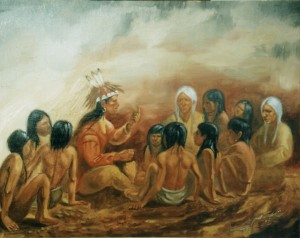Throughout my first two weeks of the Global Citizens CAP Program at UBC, I have been exposed to many questions surrounding topics such as authority, memory, individual identity, and sociological and political phenomena. These questions have challenged me to perceive the ordinary macro structures around me more critically and acknowledge the flaws and unanswered controversies present in society.
A few of the questions that were of particular interest to me were raised in my ASTU 100 course, and regarded the issue of who has the authority to share certain stories and whose viewpoints are the most authentic. This leads to the question of how important authenticity is outside of particular scholarly genres, since creative freedom and free speech, in my opinion, should be inherent rights. These questions make me speculate whether unbiased writing and storytelling is even a possibility since objectivity leaves only facts. Additionally, I believe subjectivity can help us become aware of people’s honest viewpoints and impressions over sensitive issues.
For this blog post, I wanted to apply the first question to contemporary issues, such as the debate over the usage of Aboriginal oral traditions as evidence in Canada’s courts of law. Many First Nations societies rely on the use of oral storytelling to maintain history and pass down knowledge from generation to generation (Hanson, 2009). Yet, this tradition is only recently becoming a credible source of evidence in the Canadian legal system since Western culture historically prefers the usage of physically recorded information. This leads to the question of what makes oral messages less reliable and more biased that an author’s written book or article? Part of the answer is because, as oral historian Alessandro Portelli stated, written text tends to “flatten emotional content” (as cited in Hanson, 2009). In other words, I think the reason why authors of published texts tend to have more authority is because readers are left to interpret the facts with more independence over the emotions that the text conveys, while verbal narratives provide an overt human layer to the spoken content. In additions, oral presentation allow varying emphasis and perspectives depending on when and whom the history is being told by, whereas a text serves as an unchanging and enduring resource.
However, for this case, I think Aboriginal oral narratives provide an equally reliable source of information as written documentation. First, I believe human storytelling provides a unique and tangible perspective to the historical content as it is easier to relate to, whereas words on a page are naturally more impersonal and have an administrative tone. Also, transcribing certain information may diminish from original meanings, especially if text is being translated from one’s native language to English, where some terms, punctuation, and grammatical approaches may not exist. Last, arguing that Canada has historically practiced the use of written records is not sufficient enough to downgrade Native traditions. Stating that a certain method should be considered better simply because of the group of people that use it is an unjust critique, especially when oral storytelling has been a longstanding and effective tradition in Aboriginal culture.
All in all, I believe there is no singular defining attribute that grants someone total authority; however, there are a number of social, political, and historical factors that contribute to one’s reliability. Certainly, verbal tellings add an emotional layer that is otherwise not as apparent in texts, which can be seen as an advantage or disadvantage depending on the situation. More importantly, I believe that authority does not necessarily have to derive from Western precedents.
Works Cited:
Alessandro Portelli, “What Makes Oral History Different,” in The Oral History Reader, 34.
Hanson, Erin (2009). Oral Traditions. First Nations Study Program. Retrieved from The University of British Colombia website: indigenousfoundations.arts.ubc.ca/home/culture/oral-traditions.html
Image:
“Telling Stories.” Too Long in This Place. WordPress, 5 Dec. 2008. Web. 24 Sept. 2015.
